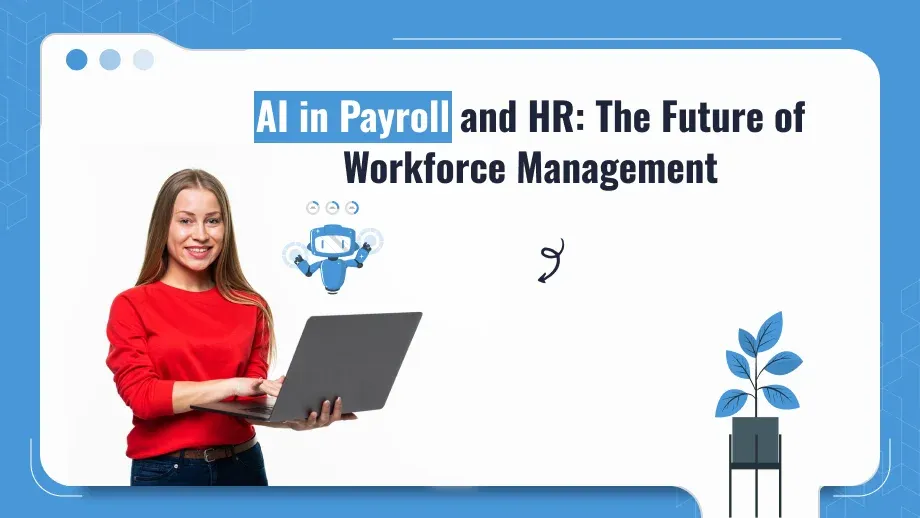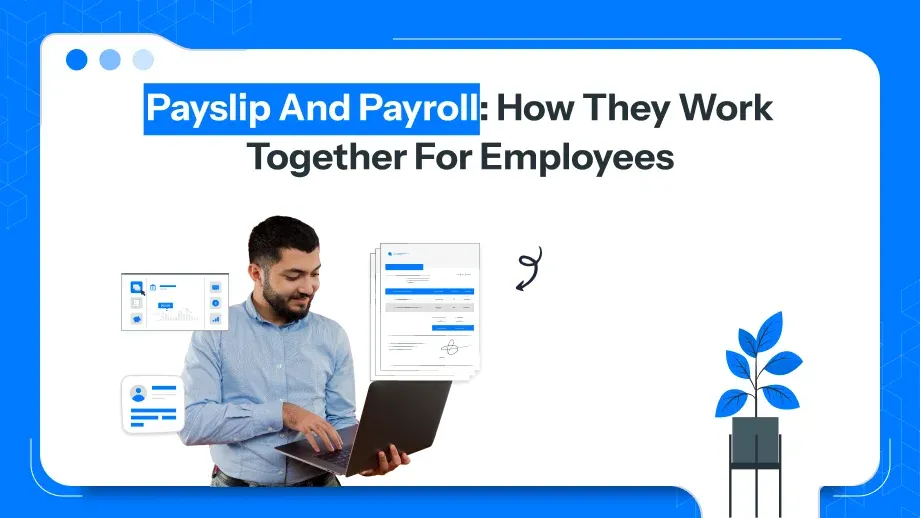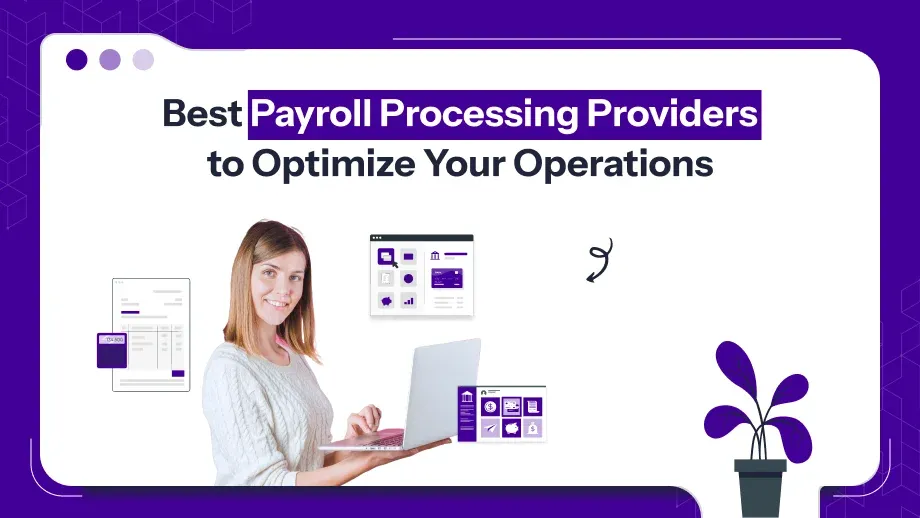AI increases the accuracy of payrolls by automating the calculations associated with the tax and wage calculations, as well as benefits. AI also finds anomalies and detects them which reduces the chance of human errors. AI makes sure that employees get paid punctually by constantly reviewing payroll information in real time.
Grab a chance to avail 6 Months of Performance Module for FREE
Book a free demo session & learn more about it!
-
Will customized solution for your needs
-
Empowering users with user-friendly features
-
Driving success across diverse industries, everywhere.
Grab a chance to avail 6 Months of Performance Module for FREE
Book a free demo session & learn more about it!
Superworks
Modern HR Workplace
Your Partner in the entire Employee Life Cycle
From recruitment to retirement manage every stage of employee lifecycle with ease.


Seamless onboarding & offboarding
Automated compliance & payroll
Track performance & engagement
AI in Payroll and HR: The Future of Workforce Management
- payroll processing industry
- 9 min read
- October 10, 2024
The management of payroll is one of the most important yet demanding assignments for any company. In the past, payroll management was based on manual processes which had a tendency to error or compliance issues, as well as inefficiencies. In the face of growing businesses and compliance requirements becoming more intricate and complex, the need for an efficient, better solution is now evident. This is the time to introduce AI in payroll, a revolutionary technology changing how businesses handle payroll processing.
Artificial intelligence isn’t only the latest buzzword. It is transforming the way the payroll process is run through automated calculations, ensuring the compliance of tax laws in real time as well as reducing errors made by humans. Companies today are more and more dependent on AI tools to simplify the HR and payroll processes.
What are the Challenges of Manual Payroll Systems?
One of the most significant issues with managing payroll is the dependence on Manual payroll system problems with manual payroll systems are anything from clerical issues to huge compliance problems, which can lead to hefty penalties or even legal trouble. Even for the most modest of companies, managing payroll by hand isn’t easy.
Most common problems with manual payroll System:
- Human error: Having to manually calculate the amount of wages, taxes and other benefits can increase the chance of making mistakes. This can result in costly errors for companies and can lead to over- or insufficient payments, which could cause employee discontent.
- Risks to Compliance: Keeping track with the constantly changing tax laws and rules and regulations for labour can be difficult using manual procedures. There is a risk of not being aware of any changes in the regulations or filling out the wrong tax form is very significant.
- Time Consumption: HR departments consume working on payroll manual processes taking time and energy away from other strategic tasks such as the development of talent and engagement for employees.
- Inability to scale: As the size of businesses increases, managing payroll by hand becomes impossible in particular for those that expand across countries or regions that have differing tax laws and laws.
The ideas for improving payroll process improvement ideas recommend automating repetitive tasks as well as using AI to decrease the chance of errors, boost efficiency and make sure that compliance is maintained. Traditional payroll systems could have worked before however, they’re not feasible anymore for businesses looking to grow their payroll operations.
How AI is Improving Payroll Processing?
AI in payroll processing is used in payroll processing to bring the benefits of automation, accuracy and real-time processing for processes related to payroll. One of AI’s greatest benefits is the ability it has to automate routine tasks, such as entering data, wage calculations and checks for compliance, which drastically cuts down the amount of time needed to process payroll as well as the chance of human errors.
AI Benefits in Payroll Processing:
- Automating Data Entry: AI is able to automatically gather and analyze data from a variety of sources such as the timesheet, attendance system, as well as employee records, which ensures accuracy and current payroll data.
- Correct Tax and Wage Calculations: AI is able to automate the complicated calculation of payroll such as deductions, benefits as well as taxes.
- Real-time Compliance Monitoring :Tax legislation and regulations change, and payroll systems powered by AI change in real-time and ensure conformity with state, local as well as federal regulations without the need for manual intervention.
In global companies, when the payroll regulations differ between countries one an additional, AI can adapt to different compliance standards and provide precise calculations across different countries.
Ready to eliminate payroll errors and streamline HR processes?
Transform your workforce management with AI today for a more efficient and compliant future.
Benefits of AI in Payroll: Efficiency, Accuracy, and Compliance
Payroll integration offers many benefits which address lengthy issues with traditional pay systems. Businesses across all industries are making the switch to AI to improve efficiency as well as improve compliance and improve the satisfaction of employees. This is the ways AI helps improve payroll management.
Enhanced Accuracy and Error Reduction
The manual payroll system is known for its blunders. An incorrect decimal number, a misplaced decimal calculation for overtime or not properly calculated deduction can result in costly results. The solution is to eliminate these mistakes through the automation of calculations based upon established rules including tax laws and the information of employees.
Improved Compliance
Compliance with payroll is among the top issues companies confront. Incorrectly filing tax returns can result in penalties or fines. AI systems are constantly up-to-date with the most recent regulations, making sure that accuracy in processing payroll and compliance to local laws regarding labor. This is especially important for multinational corporations, since the payroll AI can adjust to the various tax systems as well as labor laws in different countries.
Time Efficiency and Cost Savings
AI in payroll can reduce the need to manually oversee payroll and drastically cut down the amount of time HR professionals devote to payroll work. The automated systems process the payroll for hundreds of employees in a matter of just a few minutes, allowing HR and payroll team members to concentrate on more strategic tasks. AI payroll systems also cut operating costs because they eliminate the requirement for additional employees for payroll management, specifically in the case of companies that grow.
Fraud Detection
The possibility of fraud in payroll systems could cause significant problems for payroll systems. Payroll systems that are powered by AI come with fraud detection systems that detect irregularities like unauthorized changes in payroll records and duplicate payments, as well as unusual over-time entries. The proactive detection of fraud enhances the protection of payroll software.
The Role of AI in HR: Enhancing Workforce Management
As AI has revolutionized payroll, its effect goes beyond the transaction and number. AI in HR and improving efficiency in other HR departments and is a powerful instrument for managing the entire workforce.
AI in Recruitment
AI software or AI in Payroll streamlines the recruitment process by screening resumes connecting job descriptions and candidates while also automating the first schedule of interviews. AI algorithms look over thousands of resumes, making HR professionals less time-consuming with manual effort. Payroll platform that incorporates AI aids in creating a seamless transition from onboarding to recruitment by automatically integrating new employees to your payroll program.
Employee Engagement and Retention
AI will monitor the satisfaction of employees through the analysis of the data on attendance, performance and general employee behaviour. In detecting early indicators of discontent or disengagement, AI-driven HR systems are able to prompt actions to increase retention. AI will also design training courses in accordance with employee performance information and ensure that employees continue to develop and remain motivated.
Performance Management and Workforce Planning
It is a great tool for tracking the performance of employees, giving insight on productivity, and assisting managers in finding the best employees. Analytics that are predictive by AI in payroll will help forecast the needs of staff and help top 10 HR software in India take informed decisions about recruitment, promotions, as well as training.
The Future of AI in Payroll
The future for payroll systems will be bright. Through continuous advances with AI and machine learning systems, pay-roll systems are expected to improve their efficiency in the future, as well as be more predictive and integrated with the latest technologies.
Virtual Payroll Assistants
As AI advances, we might have virtual assistants to payroll replacing the majority of the management of payroll. They could be able to complete the automation of payroll from onboarding through tax filing, as well as creating reports and managing compliance. HR personnel will be able to concentrate on strategic tasks that require more expertise and leave the mundane payroll chores for AI.
Biometric Authentication
Security is the top concern when it comes to payroll systems, particularly where sensitive information of employees are involved. AI in conjunction with biometric systems, such as facial or fingerprint recognition could provide safe access to payroll as well as transactions. The additional layer of security will help to prevent the theft of identities and also prevent unauthorized access to payroll information.
AI and the Gig Economy
Due to the growth of gig economies paying contractors and freelancers has become more complicated. A computer-based payroll platform will simplify the process through the automation of payment plans along with tax withholdings as well as reports for workers who work from home. With more and more employers relying on flexible workers, AI will play a vital role in coordinating the payroll process effectively.
Also See: How to Choose the Right Payroll Software for Small Business
Overcoming Challenges in AI-Driven Payroll Systems
Although the benefits of AI in payroll are evident, implementing AI-driven payroll systems can be a challenge. Recognizing these challenges is essential for the successful implementation of AI efficiently.
Data Privacy and Security Concerns
Payroll handles sensitive employee information, which includes individual identification numbers, bank information, and salary data. AI-powered systems require robust security measures to make sure these data are protected. Security measures for access control, encryption of data as well as the compliance of data protection laws are vital to ensure the secure use of AI for payroll.
Integration with Legacy Systems
Numerous businesses continue to use traditional payroll systems which may not work with platforms powered by AI. The integration of AI to existing systems can be costly and a complicated process, yet it’s essential to reap the maximum potential of AI for payroll.
Employee Resistance
The implementation of AI for payroll could cause anxiety among employees, specifically regarding data security, and anxiety of losing their jobs as a result of the automation. It is crucial for companies to inform employees about the benefits of AI as well as provide the necessary education to facilitate the smooth implementation.
Conclusion
AI isn’t just an option, it’s fast becoming a necessity for companies looking to improve the payroll as well as HR processes. This tool offers greater accuracy, real-time compliance, lower costs, and higher customer satisfaction. This makes an investment worthwhile for every company. As AI grows it’s role in HR and payroll is only going to become more important. Visit Superworks for payroll software to purchase.
Companies that embrace AI now will not just enhance their payroll procedures but will also be able to prepare their business processes for the challenges of the future.
FAQs
What is the best way to use AI to help improve the accuracy of payroll?
What is the best way to ensure that AI makes sure that payroll is in compliance?
AI systems are built to be up-to-date with state and local international rules. They modify payroll procedures in accordance with the most recent legislation on taxes, labour regulations and reporting obligations. The result is a lower risk of not complying, and protects companies from fines and penalties for breach of law.
What are the obstacles to setting up AI for payroll?
The challenges include privacy issues with data and system integration problems, current software, and employees' disinterest in new technology.



